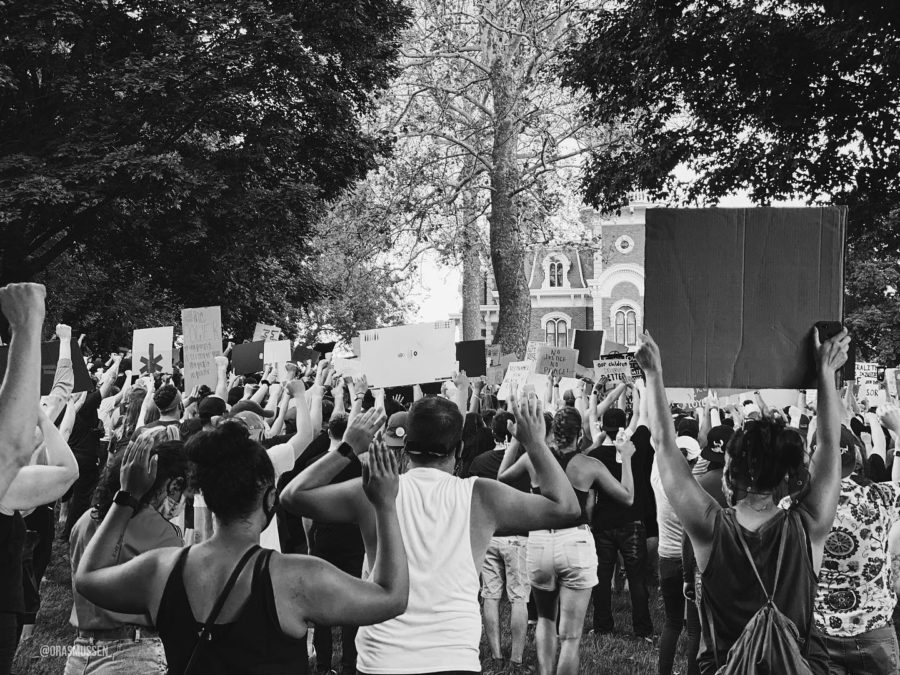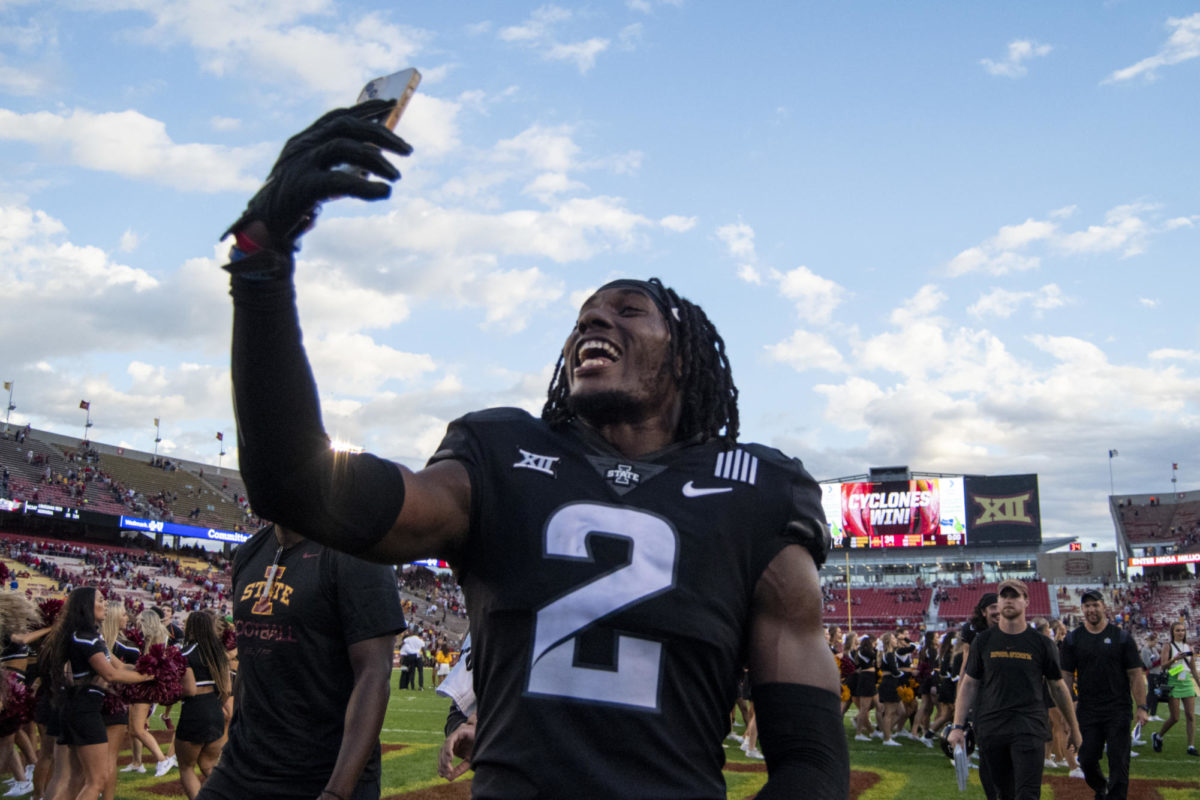Iowa will now grant voting rights to some felons; Des Moines Black Lives Matter is uninvited in the process
August 5, 2020
Gov. Kim Reynolds signed an executive order granting some felons the right to vote in the state of Iowa on Wednesday. Des Moines Black Lives Matter (BLM) said they will not thank her for signing the order.
After months of protesting, the members of the Des Moines Black Lives Matter movement said they were not invited to the signing of the order.
Courtnei Caldwell, a leader of the Des Moines BLM chapter, said this movement would not be alive without Black women and Black youth.
“We have been silenced in many ways, and us not being invited to the signing is us being silenced in a way because we have fought, we have been abused, we have been exploited and we have been harassed in many ways and Kim has not reached out,” Caldwell said.
During these protests, activists faced brutality including rubber bullets and their own members being hit by an SUV that carried Reynolds.
“We were fighting for the voting rights of every single person who has been convicted of a felony,” Des Moines BLM leader Jaylen Cavil said. “This executive order does not go far enough in reenfranchising every single Iowan who has been convicted of a felony conviction because this executive order made things conditional, it made it conditional on what kind of crimes you may have been convicted of, certain violent crimes were excluded from this executive order. She also excludes folks who are on parole and probation in this order and this is not right. In the United States of America, voting rights should not be conditional on anything, anything at all.”
The executive order does allow those who have been convicted the right to run for public office after they have served their sentence but it does have limitations. The order will not apply to anyone who has been convicted of murder, manslaughter and voluntary manslaughter or to anyone with special lifetime sentences for sexual crimes or other offenses, outlined in Iowa Code Chapter 707.
“Quite simply, when someone serves their sentence and pays the price our justice system has set for their crimes, they should have their right to vote restored, automatically, plain and simple,” Reynolds said at the Iowa Capitol on Wednesday morning.
Felons must discharge their sentence, including parole and probation. Anyone who does not have their rights automatically restored can petition the governor individually to have them granted.
Iowa was the only state to restrict voting rights to those who have been convicted of a felony even after completing their sentence.
“It boils down to our fundamental belief in redemption and second chances,” Reynolds said. “Quite simply, when someone serves their sentence and has paid the price our justice system has set for their crime, they should have their right to vote restored automatically, plain and simple.”
Chairman of the Iowa State Young Americans for Freedom and President of the Iowa Federation of College Republicans, Chuck Klapatauskas said the order was a good decision from the governor and hopes to see the voting process expand in Iowa.
“Personally as a leader and conservative, I think it is a good move to give those who commit nonviolent crimes a second chance because everybody makes their mistakes in life and it is not a good move for the country to exclude them from being the ones to rebuild the decisions of the future,” Klapatauskas said. “Certainly, those who commit egregious crimes such as murder or rape that is where I think a certain amount of conservatives draw the line because we don’t think they will rebuild the fabric of our society and morals. Especially for those who haven’t committed higher crimes, I think it is important for them to be able to have a second chance and be a part of the voting process in the country.”
The Iowa State Daily reached out to the Iowa State College Republicans but were not immediately available.
The policy has disproportionately impacted one in 10 Black Iowans of voting age from voting, according to a 2016 estimate from The Sentencing Project. This is an issue the BLM movement and other civil rights movements have been fighting for.
The Des Moines Black Lives Matter chapter chanted “Ain’t no power like the power of the people, because the power of the people don’t stop” prior to their press conference celebration.
It has been 51 days since the Des Moines BLM chapter met with Gov. Reynolds to discuss the executive order.
The order Reynolds signed Wednesday will grant voting rights up to 60,000 Iowans in time for the election in November.
Director of social media for the Iowa State College Democrats, Teagan Wilcox, said she was surprised Gov. Reynolds went through on signing the order due to it being something she has promised since her campaign in 2018.
“I think that this is possibly a good step and see if she is willing to listen, and if not I hope that the movement will continue to pressure her until she is willing to listen,” Wilcox said.
The Des Moines BLM chapter met with Reynolds twice and supplied her with a draft of an executive order back in June.
Des Moines BLM leader Matthew Bruce said he thanks the protesters that have shown up rain or shine and who have been brutalized during and before the BLM campaign began.
“Tens of thousands of Iowans did gain their right to vote today, and a disproportionate number of which were Black and Brown, that is a reality, that is a fundamental change in the battleground that exists for 2020 and moving forward,” Bruce said. “Also what it is, is it shows us that this works no matter what anybody else has got to say about it. Action works, and it works a lot quicker […] and that process would have still been processing had we not stepped up and did what we had to do to get it to the finish line, that has to be said.”

















